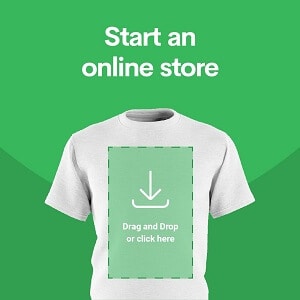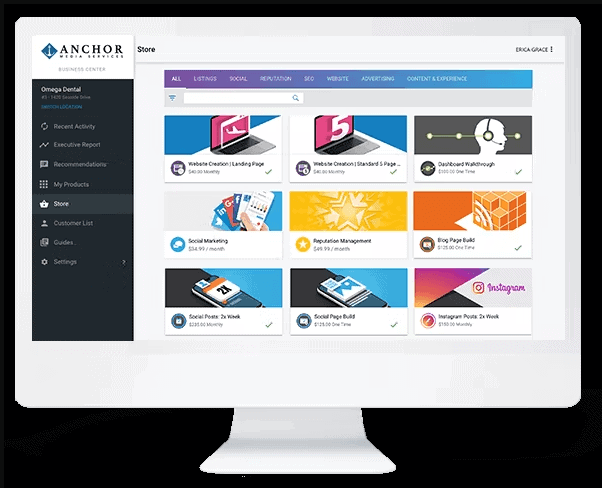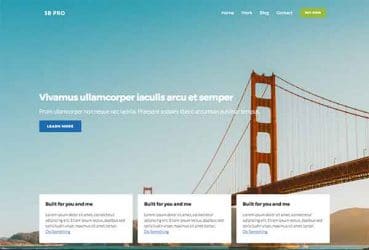
5 Tips to Improve Your Website’s Expertise, Authority & Trustworthiness (E.A.T)
- Technology
- Tips and Advice
- Oct 10
- Share post

If you’ve ever tried to promote a website, you know what Google’s algorithms are and how difficult it may be to cater to them. They aren’t set to drown particular websites. They are created to provide the best answers to searchers around the world.
Your job is to make sure your website can provide those answers at the highest level. One way to do that is to improve your site’s EAT:
- Expertise;
- Authoritaty;
- Trustworthiness.
When you create structured articles, write guest posts to get relevant backlinks, create media content and infographics, etc., you’re doing it to show and achieve your EAT. Only websites with expert writers, high authority, and decent trustworthiness have a chance of getting to the top of focus SERPs nowadays.
Here, we’ll talk about 5 ways to improve those metrics. You have a large scope of work in front of you concerning your writers, topics, content filtering, and much more.
1: Build a Personal Brand
The guidelines say that the information about your reputation should be relatively easy to find. This isn’t only about what you write on the website; it’s clear that brands won’t post bad things about their products.
So, you should build a personal brand or company reputation outside of the site. If you own a blog, establishing your authority as a respectable author is crucial. In the same tone, if you offer services or products, it should be known that their quality is on a high level, as well as customer experience.
2: Highlight Your Authors and Their Bios in Editorial Articles
EAT guidelines state that the person responsible for the piece of content should be mentioned on the page. This means that if you give strong recommendations about people’s money, health, life, etc., you should trust experts in the field.
If we’re talking about product pages and landings, this means that you need to have your contact info or customer support contact button visible on the first viewing screen. Visit this page to find out more on the topic of customer experience on your site.
3: Upgrade Your Tech Security
Authority and trustworthiness aren’t only about the quality of content you offer and the experts you feature. The security of the website should be on a high level, especially if you own an online shop.
If the checkout page starts with HTTP instead of HTTPS, it will be automatically labelled as potentially dangerous, which will give it a low rating. Links and redirects should be configured correctly. If done correctly, all links, canonicals, and redirects must take you to an HTTPS page
In case you’re using badges or logos on the page, make sure they are verifiable. If not, one small logo will make the site drop in the ratings. Also, a technical SEO overview is a must; you can find out more about it at bestkoditips.com.
4: Analyse Your Content According to EAT guidelines, Fix or Delete Low-Quality Pieces
 One page with a low EAT rating won’t ruin other high-quality ones. But it may make the website and your brand drop. So, it’s wise to look through the content you have and analyse it as to the author’s expertise, the contents, and more.
One page with a low EAT rating won’t ruin other high-quality ones. But it may make the website and your brand drop. So, it’s wise to look through the content you have and analyse it as to the author’s expertise, the contents, and more.
If you see a low-rated page that doesn’t get lots of traffic, it’s better to delete it without wasting time for analysis.
As to the highly-rated pages with lots of traffic, you can update them to avoid losing a spot and maintain authority. The best thing to do is to invite an expert to analyse the publication and add something to it. Make sure you mention the author and their bio.
5: Filter User-Generated Content
Yes, user-generated content is important for any brand. But not every piece of such content will benefit your EAT-wise. Let’s see what low- and high-quality UGC is:
- Poor quality.
- If this is a page containing any kind of medical or life advice without a disclaimer from the brand that the users’ opinions are their own, such a piece will be heavily filtered. It’s a serious recommendation given by a non-expert, which is not good.
- High quality.
- If the topic doesn’t concern health and medicine and doesn’t give clear “use this but not this” advice, and if the user is knowledgeable on what they write about, this is good content. Such an article or video will promote your brand and show what kind of community uses its products and services.
Nowadays, having a large number of seemingly expert articles isn’t enough to build trust and rank high. Search engines, as well as searchers, look for authenticity and true expertise. If you publish such content, you won’t need additional manipulations to rank higher and be popular among your target audiences.
Analyse your articles and media for EAT factors, improve or delete low-quality pieces, build your brand, and stick to its level, moving only higher.
By Jo Smith | 10/10/2021
Categories
- Advertising and Marketing
- Business
- Business Products & Services
- Buyers' guide
- Employment
- Finance
- Franchising
- Health & Fitness
- Health Care & Medical
- International
- Internet Services
- Investment
- Professional
- Real Estate
- Sellers' guide
- Software
- Technology
- Tips and Advice
- Top Pick
- Web Resources
- White label guide
Looking for business opportunity to start your own business? Check these out!
Recommended reading







